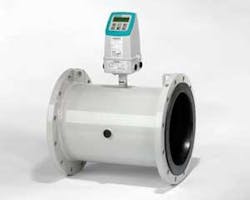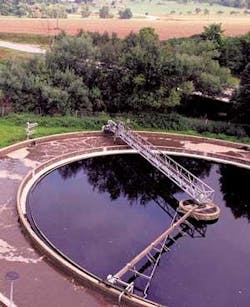Flowmetering under Latin American Weather Conditions
By Marco Camarena
Electromagnetic flowmeters allow sewage treatment to get over seasonal hurdles of low flow and flooding.
In Latin America, seasonal climates represent a challenge to wastewater measurement – and not least to sludge processing. In particular, the need to handle low flow makes great demands on a flowmeter. Electromagnetic flowmetering rises to this challenge.
While water covers no less than 70% of the earth’s surface, usable water is increasingly becoming a scarce resource globally. Latin America, however, is also affected by radical seasonal climate changes covering the scale from flood to drought. This strains the wastewater industry regionally being an important alternative for both industrial and standard water applications.
Fluctuations in the climate – especially those generating water shortage during the summer – are a serious issue. Countries such as Mexico, Chile, Brazil and Argentina suffer from this circumstance. Water shortages affect the sludge process and makes enhanced demands on flowmeters because of the need to handle low flow. More specifically, low flow means that at high ambient temperature or when the sludge is dry, the viscosity of the sludge is also high. This indicates that the speed of the slurry pump must be reduced.
Flowmetering necessity
Understanding the initial phase of the sludge process is vital to comprehend required capabilities of the flowmeter. Most importantly, it must be capable of monitoring volume. The total volume at any given time determines the expected load on all stations, and the flowmeter signal is among other things used for flow-proportional dosing of chemicals as well as control of return sludge. This signal can also be used to control valves or pump stations in the sewer system to ensure a constant load on the sewage treatment plant.
Within sludge processing, Siemens Process Instrumentation offers the Sitrans F M MAG 5100 W – an electromagnetic flowmeter capable of fulfilling these harsh demands the industry and its applications require. Designed in corrosion resistant Hastelloy C, the magmeter with its patented liners of NBR and EPDM is a flowmeter sensor suited for several water applications including sludge processing. Due to its coned design, increased low-flow accuracy is achieved, making it especially attractive within this industry segment.
Solution for sludge
Regional climates causes several challenges for the flowmeter. Water shortages typical in many areas of Latin American during the summer pose a problem because of the decreasing volume of water and increasing proportion of sludge. Traditionally, it has been difficult to measure the flow of the wastewater in the initial treatment phase. This is due to the needed low flow because of the high viscosity of sludge. The MAG 5100 W, however, performs well in measuring the low flow having an accuracy of 0.5 % measuring at only 0.5 m/sec.
Water overflow represents another challenge to the flowmeter. Control of stormwater overflow is important for maintaining a constant balanced flow into the sewage works. The flowmeter helps to monitor stormwater conditions, prevent overloading the system and gather important data for future plant extensions. In this context, the flowmeter can measure up to 10 m/sec, which is market leading in terms of performance.
Finally, another feature of the unit relevant for the wastewater industry deals with the drive speed and is thus to some degree related to the measurement of low flow. Unstable drive speed typically occurs at night resulting in unstable pumping. As a standard, this flowmeter can be programmed for stable pumping by connecting the relay directly to the unit. Thereby, it’s possible to measure the flow at night by activating the Q max. 2/night and enabling a new measurement scale.
Enhancing the wastewater process
In regions such as Latin America, water is a limited resource and thus wastewater processing is essential. Placed in a broader perspective, energy savings are not only accomplished by the capabilities of the flowmeter but through the whole process line including, for example, the drive speed and pressure measurement. Still, to accomplish these energy savings, correct measurement of the wastewater is pivotal as it also enhances water quality control.
The Siemens Sitrans F M MAG 5100 W electromagnetic flowmeter ensures higher automation and efficiency of the processes, which finally improves the competitive edge. Cost-effectively measuring low-flow separation of sludge from wastewater, it leaves plenty of new opportunities for improving process efficiency.
Author’s Note:
Marco Antonio Camarena Amaro is Sitrans FM product manager in the Process Instrumentation Division of Siemens AG’s Siemens Flow Instruments A/S, which is in Nordburg, Denmark. Contact: [email protected] or www.siemens.com/processinstrumentation



